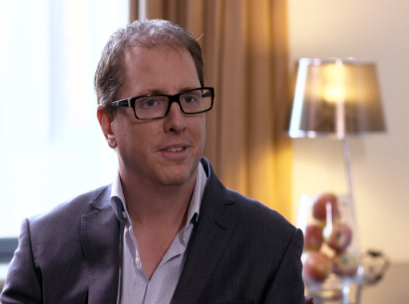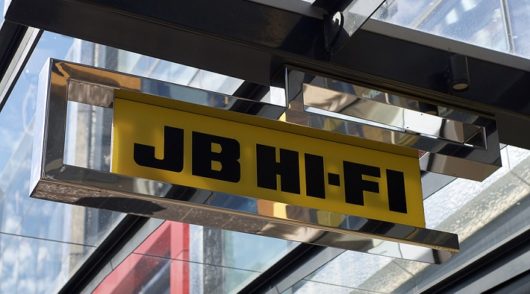 JB Hi-Fi Group CEO Richard Murray may have narrowly skated past consensus estimates with his net-profit result of $208 million, but he remains confident the business is poised for success amid ongoing systems investment and a roll back of JB Home in New Zealand.
JB Hi-Fi Group CEO Richard Murray may have narrowly skated past consensus estimates with his net-profit result of $208 million, but he remains confident the business is poised for success amid ongoing systems investment and a roll back of JB Home in New Zealand.
Delivering JB’s result for the year ended 30 June to investors on Monday morning, Murray was repeatedly quizzed by shareholders over a 9.4 per cent spike in JB Hi-Fi’s cost of doing business in absolute terms.
Investment in a new e-commerce platform for JB, IT systems and supply chain initiatives to be announced later in the year drove the uptick in costs, with extra labour being brought in to hasten the pace of the projects, Murray said.
“We’ve invested to future proof the business, and put our best foot forward – sometimes that’s in-store and sometimes it’s online,” Murray told Inside Retail after the result.
Extra store staff have also been brought on to match strong sales growth, which were up 10.9 per cent to $4.1 billion in Australia for the year.
But the news that the projects aren’t one offs, and are instead increasingly part of JB’s cost base, failed to excite investors, who sent JB’s stock down 1.3 per cent by early afternoon trading, despite the strength of the headline figures.
JB’s share price has now sunk more than 11 per cent since January, as speculation about the impact of Amazon’s entry on its market position continues to weigh on market confidence.
Murray said the group has compared its prices to those overseas to understand the implications on its business, revealing that they believe they’re within “about 5 per cent” on key lines.
Click-and-collect cages placed near the front counters within stores will be trialled in an effort to utilise JB’s network of 185 stores, as online grows to 3.8 per cent of total sales.
A number of announcements surrounding JB’s logistics are expected around Christmas, as the group looks to leverage its newfound scale from the Good Guys acquisition to drive back-end efficiency.
Those synergy benefits, projected at between $15-20 million, are anticipated to be realised predominately in FY18, with $2-4 million in implementation costs to be booked in the first half.
The Good Guys itself experienced flat sales for the year, with same-store sales down 1.3 per cent. However, with Terry Smart at the helm sales picked up in July, growing 5.8 per cent on a comparable basis.
Asked whether there’s more volatility in The Good Guys’ business than in JB’s, Murray said that from 1 July there’s “no excuses” for Smart and his team, and that the business is looking forward to its next chapter with enthusiasm.
New Zealand continues to be a loss-making business for the group, with Murray conceding that it will be “challenging” to justify an ongoing presence in the market if his planned review and two-year turnaround for the business is unsuccessful.
“I’m very confident in our NZ business, and I’m excited about driving the turnaround program, the staff are onboard and we’ll make the right decision to get it there,” Murray said.
JB will roll back its Home offering in New Zealand as part of the turnaround, after realising that it couldn’t generate the scale to make a bulky goods option viable.
Murray added that JB’s best performing stores in NZ had been stymied by the home offer and that he expects a material improvement in those locations once the offer has been consolidated.
Access exclusive analysis, locked news and reports with Inside Retail Weekly. Subscribe today and get our premium print publication delivered to your door every week.





